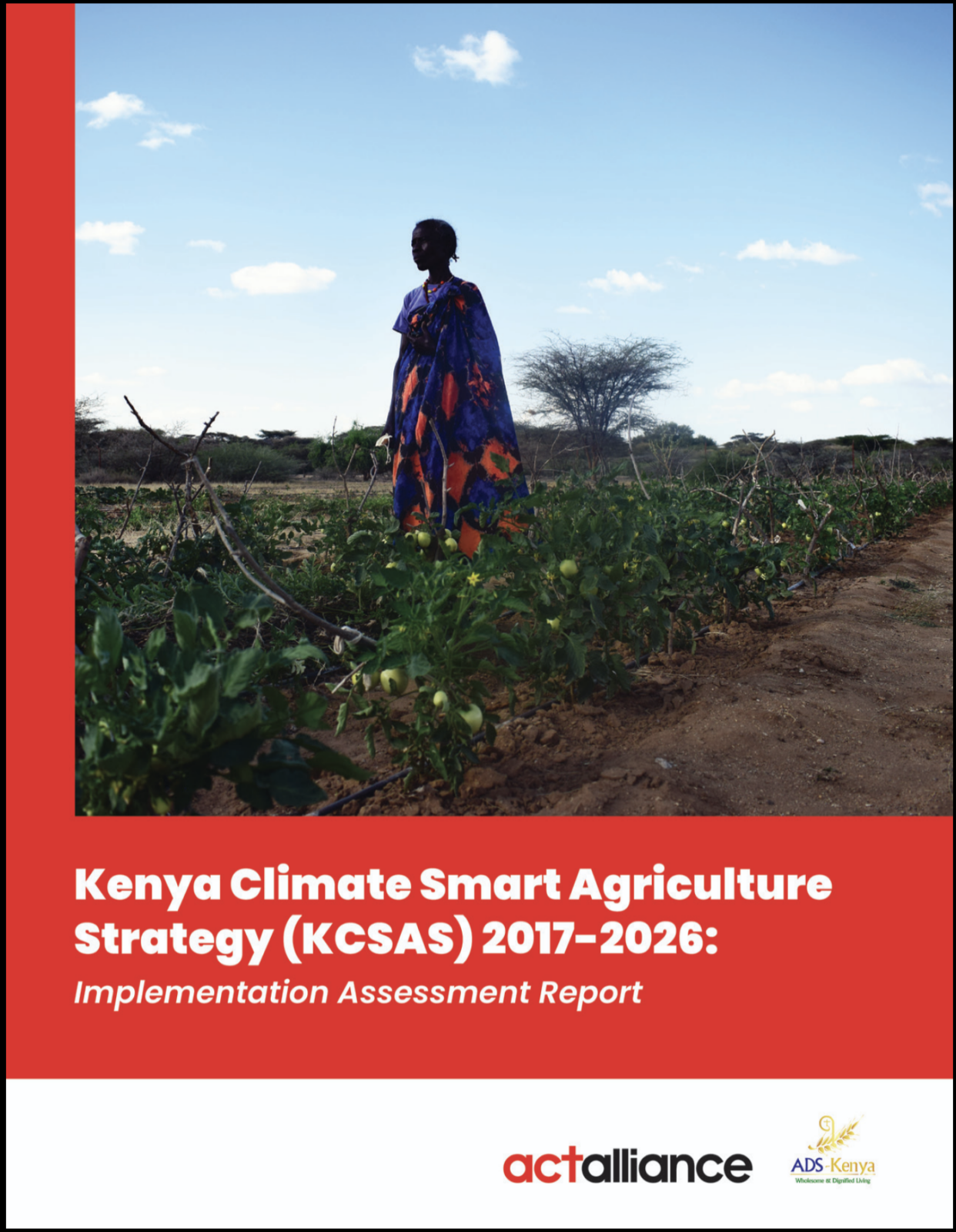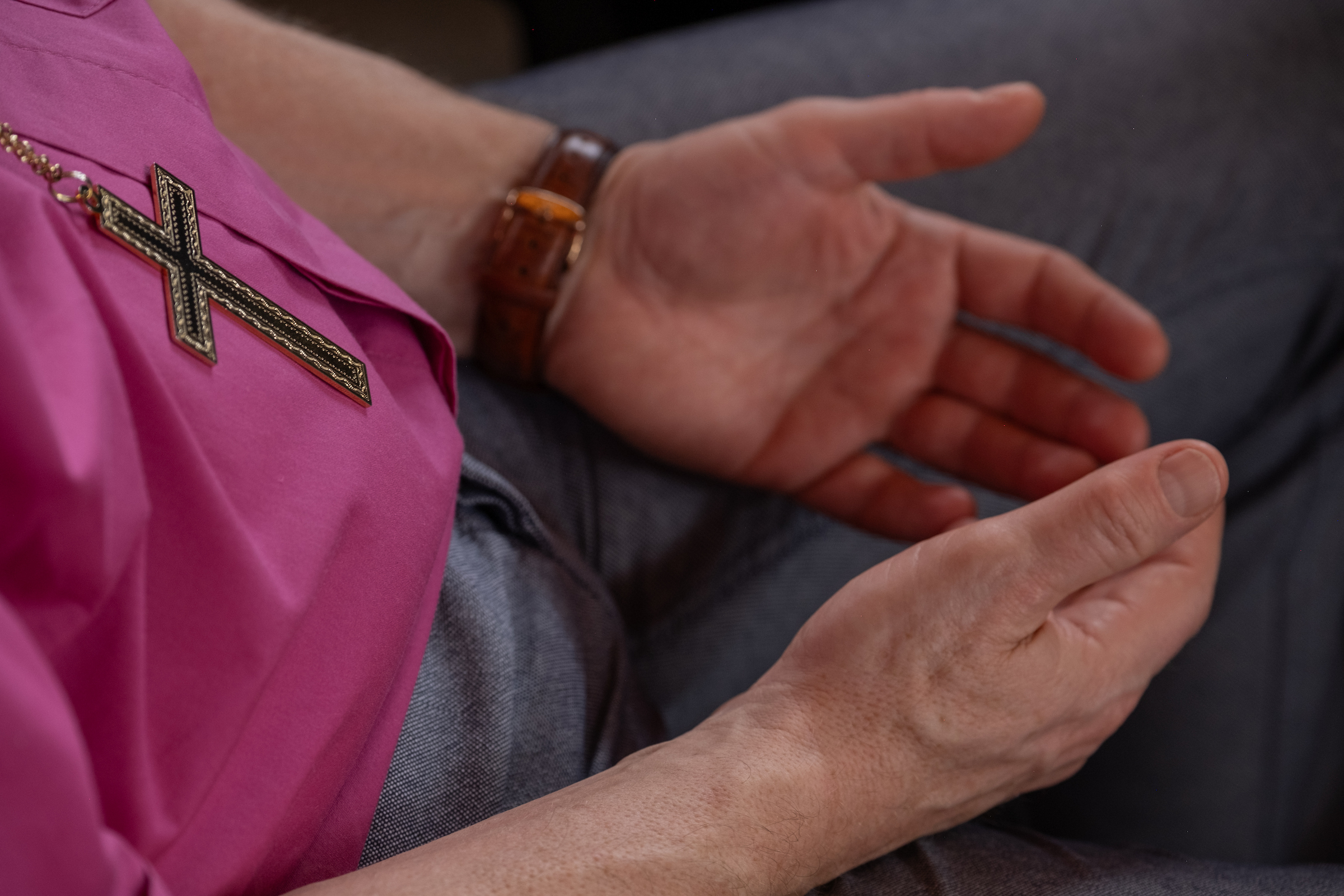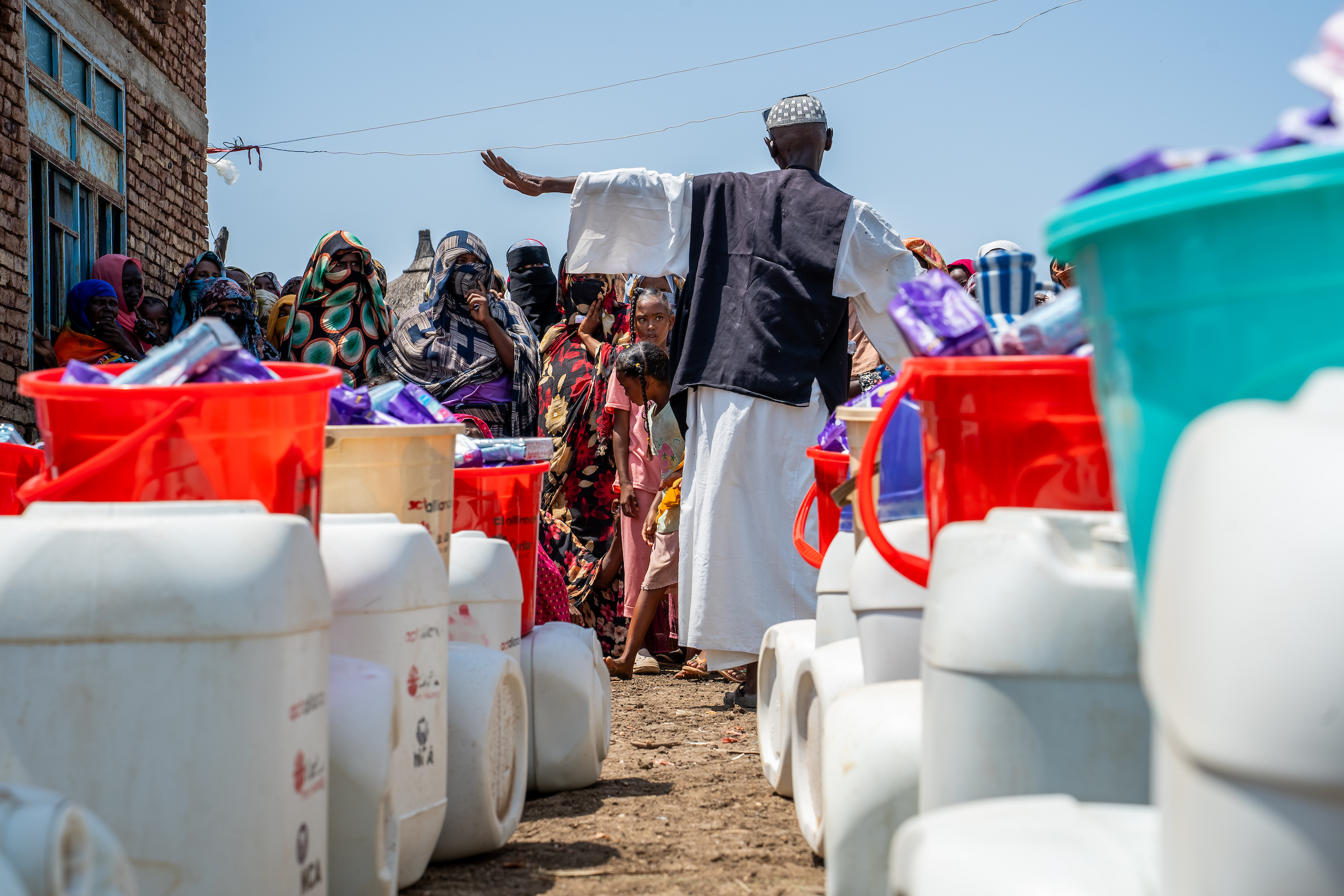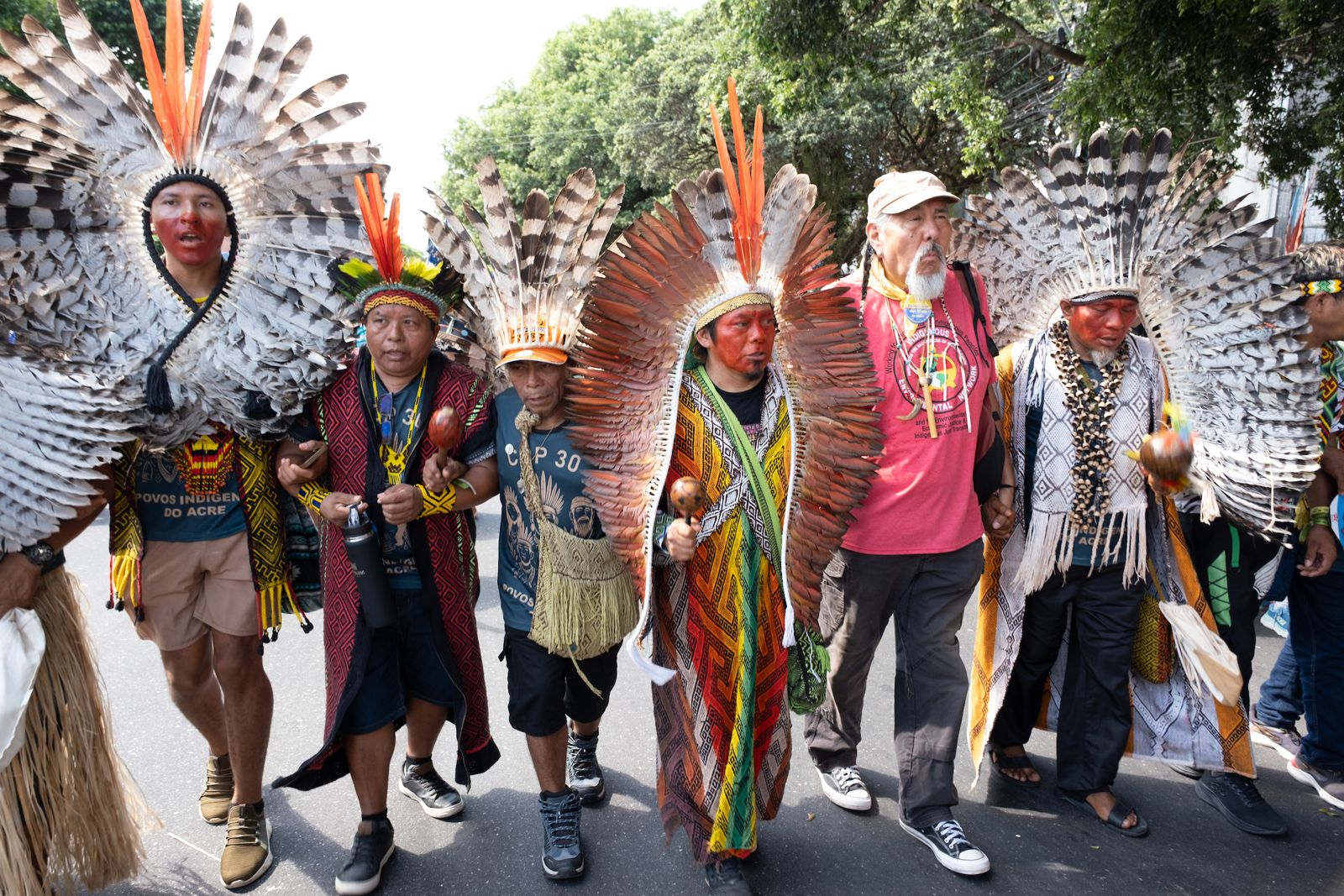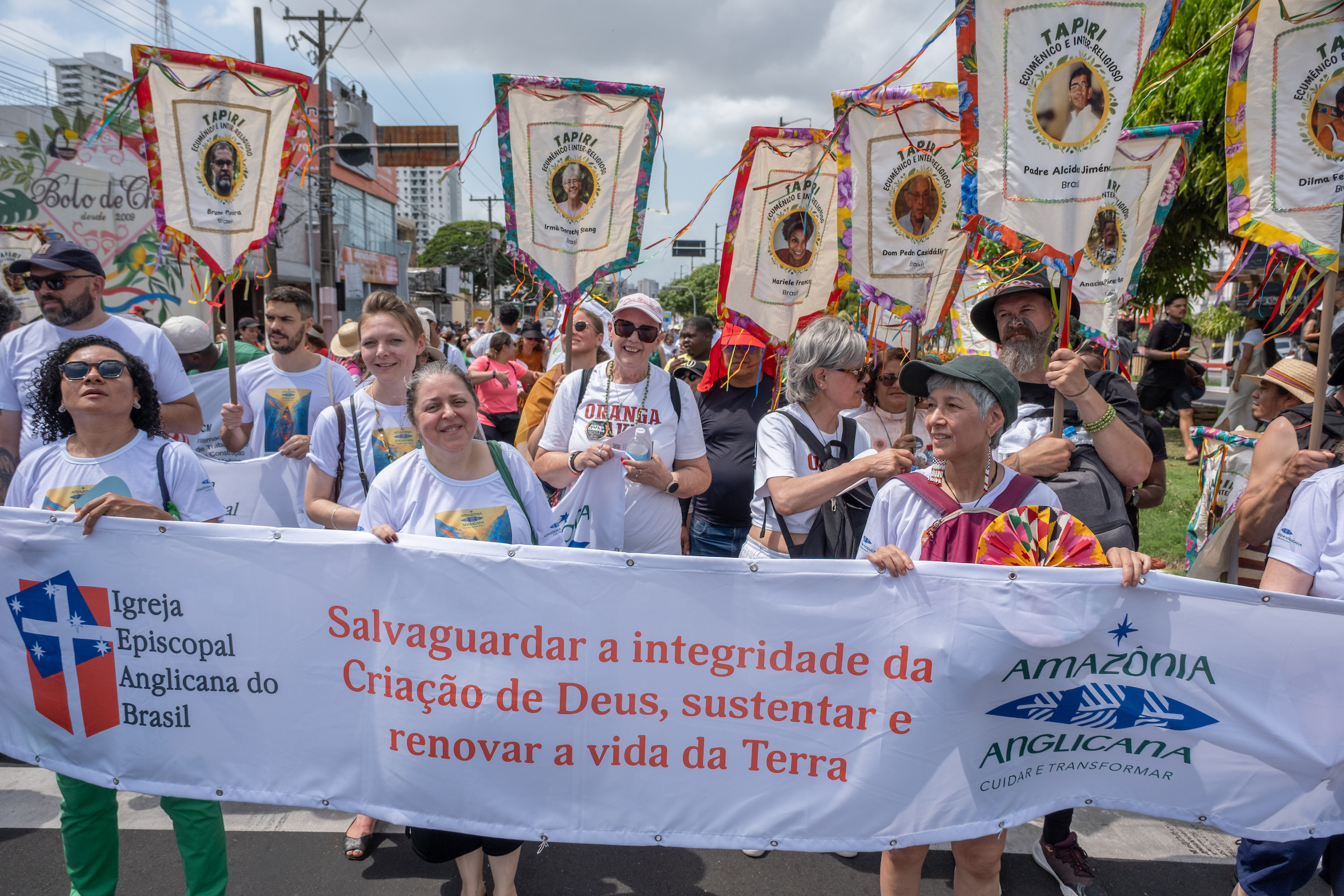By Rosa Pedersen and Sofie Pultz
Attending a Conference of Parties (COP) for the first time offers a unique glimpse into the global fight against climate change. Approaching the process with a fresh pair of eyes and a determination to make a difference brings about new perspectives and ideas. However, the disappointing outcome of this year’s conference raises the critical question: do civil society organisations still have a role to play in the current COP-system?
For the past two weeks, we have been part of the COP29 ecumenical delegation steering group, working tirelessly with advocacy, strategic communication, and logistics. Participating virtually from Copenhagen, we approached COP29 with excitement and hope, ready to push for ambitious climate agreements.
Unfortunately, the outcome left us disappointed. Geopolitical tensions overshadowed climate action, with developed country negotiators more focused on protecting national interests than addressing the escalating crisis. While voices from nations on the frontlines were clear and urgent, they were largely ignored.
What the world got was a New Collective Quantified Goal (NCQG) that aims to mobilise at least $300 billion by 2035, with an overarching goal of $1.3 trillion. While these numbers sound significant, they fall short in comparison to the mounting costs of climate-related loss and damage, adaptation, and mitigation. It’s simply not good enough.
The outcome left many people wondering if COP had run its cause. Including civil society organisations. Is all the hard work, sleepless nights, and relentless advocacy worth it if this is the result?
We understand the frustration. We share it. The system feels broken, and the temptation to walk away is strong.
Is all the hard work, sleepless nights, and relentless advocacy worth it if this is the result? We understand the frustration. We share it. The system feels broken, and the temptation to walk away is strong.Rosa Pedersen and Sofie Pultz climate assistants, DanChurchAid
But here’s what worries us more: the prospect of a COP without the involvement of civil society. Without NGOs, researchers, and activists relentlessly holding leaders accountable, the outcomes would have been even weaker. So, if civil society steps away, who is left? Fossil fuel lobbyists and indecisive politicians?
That’s a scenario we cannot accept.
Yes, COP deserves criticism. The process is flawed, frustrating, and too inefficient. But it’s the only global political forum we have for coordinated climate action. Without it, the future becomes even more uncertain, even more vulnerable.
Walking away is not an option. Both for those already severely affected by climate change impacts, but also for future generations, whose future entirely relies on the mobilisation of climate finance. As young climate delegates, we know the stakes. This is our future at risk.
So, we stay and continue the fight. We cannot afford not to. And we hope civil society organisations will do the same.

 Rosa Pedersen and Sofie Pultz work as climate assistants at DanChurchAid. Rosa is studying for an MSc in Climate Change at Copenhagen University, and Sofie has recently graduated from an MSc in Anthropology and Development at The London School of Economics and Political Science (LSE).
Rosa Pedersen and Sofie Pultz work as climate assistants at DanChurchAid. Rosa is studying for an MSc in Climate Change at Copenhagen University, and Sofie has recently graduated from an MSc in Anthropology and Development at The London School of Economics and Political Science (LSE).

